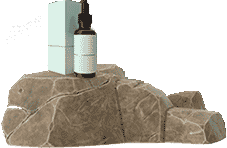The three main differences between CBD and THC
The three main differences between CBD and THC
Although CBD and THC are both cannabinoids that interact with receptors found in the human brain, they have dramatically different effects.
People often confuse CBD with tetrahydrocannabinol (THC). This isn’t too surprising when you consider that the two are derived from the same plant and both belong to the cannabinoid group. In this article, we’ll cover the major differences between CBD and THC.
THC is known for its ability to cause euphoria and its psychoactive effects. CBD, on the other hand, is not a psychoactive substance. What’s more is that CBD is typically derived from hemp, and THC from marijuana. The cultivation of hemp and the extraction of CBD from hemp are both completely legal.
Keep reading this article to learn more about the differences between CBD and THC.
CBD is not a psychoactive compound
Tetrahydrocannabinol (THC) is a compound found in cannabis that is known for producing psychoactive effects (or a so-called “high”). Like THC, alcohol and caffeine are psychoactive drugs that people commonly use to alter their mental state. While alcohol is a mood-altering substance that can lead to intoxication, THC produces a psychotropic “high”.
If you’ve ever been to the Netherlands, you’ve probably heard of coffee shops – establishments that are permitted to sell cannabis products under certain strict conditions. Most buyers who frequent these venues are recreational users who use cannabis for its euphoric and relaxing effects. When you think of marijuana getting you high, it’s the THC that does that.
In addition to THC, weed contains CBD, which is another essential cannabinoid. Before we continue, we’d like to make a critical distinction: part of the appeal of CBD, at least for people who don’t want to get high, is that it will never produce an altered state of perception.

CBD is derived from a different plant
The cannabis plant contains both THC and CBD. CBD, however, can be derived from two different cannabis plants — hemp and marijuana, which are often confused with each other (just like CBD and THC are). It is important to note that there are a number of differences between these two types of plants.
Hemp, for example, hardly contains any THC at all. It is, however, a rich natural source of CBD. Marijuana, on the other hand, contains high levels of THC (10-30%) the chemical which gives you psychoactive effects when consumed. While hemp is low in THC, it can be high in cannabidiol (CBD). If a CBD extract is derived from hemp and contains less than 0.3 percent THC, then it is not considered a controlled substance, as CBD products with 0.3 percent THC cannot produce a high.

CBD is legal
Because CBD contains only trace amounts of THC, products derived from industrial hemp are perfectly legal for personal use in most European countries – but the truth is a bit more nuanced than that.
Under Dutch law, CBD is not legal in the strictest sense of the word: rather, the Netherlands utilises a policy of “tolerance” towards marijuana and CBD. While CBD is legal for sale and consumption, cannabis cultivation and production is not, which is why CBD products are often manufactured in other EU countries.
Although cannabis is not legal in the Netherlands, this “tolerance policy” also applies to THC: the sale of marijuana and the use of small amounts of cannabis and hashish are allowed in licensed coffeeshops. The sale of concentrates such as cannabis oil, however, is prohibited. The good news is that CBD oil is perfectly legal to purchase and possess.










